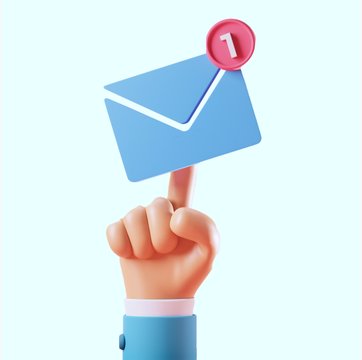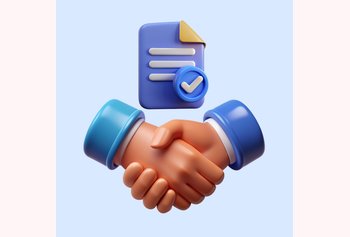How to Ask an Employer for a Reference: 5 Templates & Tips

Table of contents
In today’s competitive job market, references can be the difference between getting an interview and getting your dream job. A strong reference can help you stand out from other candidates and give you a competitive edge.
When you are asked to provide references, it is important to choose people who know you well and can speak to your skills, abilities, and work ethics. You should also ensure that your references are willing to provide a positive reference for you to your potential employer.
Table of Contents
- 7 tips to consider when asking for a reference
- 5 Effective Email Templates to Ask for A Reference/Recommendation
- Nurture your professional relationships
If you are not sure who to ask for references, here are a few tips:
- Think about your previous employers. Who were your direct supervisors? Who were the people you worked with closely? These are the people who are most likely to be able to speak to your work experience and performance.
- Consider your colleagues. Did you work on any projects with other people? Did you have any mentors or coaches? These people can also provide valuable insights into your work and abilities.
- Ask your friends and family. If you don’t have any professional references, you can ask your friends and family for a personal reference. They may be able to provide references that speak to your character and personality.
Once you have chosen your references, it is important to ask them for permission before you list them on your resume or application. You should also give them a heads-up that you may be contacting them soon to ask for a reference.
When you ask for a reference, be sure to be polite and professional. Thank the person for their time and let them know that you appreciate their consideration. You should also provide them with the necessary information, such as the name of the company you are applying to, the position you are interested in, and the contact information for the hiring manager.
Start with following these tips, you can increase your chances of getting a strong reference that will help you land your dream job.
7 tips to consider when asking for a reference
When asking for a reference request, there are several important factors you should consider to ensure a successful and professional process:
- Choose the Right Person: When deciding whom to ask for a reference, think about who can most effectively endorse your skills, achievements and work ethic. For example if you are searching for your first Italian speaking remote job, it would be good to ask your professor about the reference for your proficiency in this language.
- Be Specific: Provide specific details about the job you’re applying for to help the reference writer tailor their recommendation to the role. If relevant, you can also mention if the role involves handling invoices or managing financial records. Also, guide them with your digital portfolio to highlight the specific projects or tasks where you excelled.
- Request Politely: Make your request respectfully and politely, expressing that you understand if they can’t fulfill the request for any reason. Remember, writing a reference can be a significant commitment of time and energy.
- Provide an Out: Understand that not everyone will feel comfortable providing a reference. They might not have the time, or they may not feel they know your work well enough to provide a strong recommendation. In your request, indicate that you understand if they’re unable to provide the reference.
- Follow-up: If you don’t hear back within a week or so, it’s acceptable to send a polite follow-up email. If they agree to provide the reference, remember to thank them.
- Stay in Touch: Keep your references informed throughout your job search process. Let them know when you’ve accepted a new job offer and express gratitude for their help with a thank you note.
By keeping these considerations in mind, you can navigate the process of asking for a reference with professionalism and respect, ensuring you get the strongest endorsements possible.
5 Effective Email Templates to Ask for A Reference/Recommendation
Here are 5 effective reference email templates you can use to ask your colleagues and employers, their permission to give you a positive recommendation for your future endeavors.
1. Asking a Current Employer for a Reference
In some cases, you might find yourself applying for a new role while still employed. It’s crucial to approach this situation delicately to maintain professionalism. Write professional emails using Hiver’s free ai email writer.
Subject line: Request for Job Reference
Dear [Employer’s Name],
I am writing to you as I am considering exploring new opportunities and roles in [specific industry]. I believe that having a reference from you, given our work together at [Your Company], would significantly enhance my applications.
I would greatly appreciate it if you could provide a reference that highlights my contributions to [specific project or responsibility] and my skills in [mention specific skills].
Please let me know if you need any additional information. Thank you for considering my request.
Best Regards,
[Your Name]
Importance:
This “employee reference example” emphasizes respect for your current employer and highlights your professional approach to career growth.
2. Asking a Past Employer for a Reference
It’s common to ask a previous employer/ former manager for a reference, particularly if you had a positive relationship and left the company on good terms.
Subject: Request for Employment Reference from [Your Name]
Dear [Former Employer’s Name],
I trust this email finds you well. As you may know, since leaving [Former Company], I have been exploring new roles in [specific industry/field]. I am reaching out to request if you would be willing to provide a reference for me based on our work together at [Former Company].
During my job application process, I hope to highlight the skills and experiences I gained there, particularly [mention specific skills or projects]. Your endorsement would be invaluable.
Thank you for considering my request. Please let me know if you need any further details.
Best Regards,
[Your Name]
Importance:
This “employee reference template” maintains a respectful tone, recognizing the value of your former employer’s endorsement while providing them with context about your job search.
You may also like: Your Guide to Nailing a Customer Service Job Interview
3. Asking for a LinkedIn Recommendation
A LinkedIn recommendation can boost your profile visibility and credibility to prospective employers or clients on the platform.
Subject: Request for a LinkedIn Recommendation
Dear [Employer’s Name],
I hope this message finds you well. As I am working on enhancing my LinkedIn profile, I believe that a recommendation from you, based on our work together at [Your Company], would add significant value.
If you’re comfortable doing so, could you please provide a recommendation that touches on my role in [specific project or responsibility] and my skills in [mention specific skills]?
Thank you in advance for considering this request. I’m happy to reciprocate the favor if you’d like.
Best Regards,
[Your Name]
4. Asking a Colleague for a Reference
At times, a reference from a peer can be just as valuable as one from a manager or supervisor, particularly if you’ve collaborated closely on projects.
Subject: Request for a Professional Reference
Dear [Colleague’s Name],
I trust you’re doing well. I’m currently in the process of seeking new opportunities and I believe that a reference from a trusted colleague like you would be extremely valuable.
Would you be comfortable writing a reference that highlights our collaborative efforts on [specific project] and my skills in [mention specific skills]?
Please let me know if you need any additional information. Thank you for considering my request.
Best Regards,
[Your Name]
Importance:
This “employee reference example” underlines the importance of peer opinions in building a holistic view of your capabilities, team spirit, and work ethic.
You may also like:119 Email Phrases to Help You Get the Desired Response
5. Asking for a Character Reference
Sometimes, you may need a character reference – this can come from a colleague, friend, or mentor who knows you well enough to vouch for your personality and character.
Subject: Request for a Character Reference
Dear [Reference’s Name],
I hope you are doing well. As I am currently exploring new opportunities, I believe a character reference from you would be invaluable, given the close professional/personal relationship we have shared.
If you feel comfortable doing so, could you please write a reference that speaks to my personal qualities such as [mention specific traits or examples]?
I appreciate your help and am more than happy to provide any additional information you might need.
Best Regards,
[Your Name]
Importance:
This “employee reference template” acknowledges the value of personal traits and characteristics in professional settings. A character reference can provide a comprehensive view to the recruiter, of an individual beyond their professional accomplishments.
Nurture your professional relationships
Securing a strong reference is not merely about asking; it’s a process that encompasses the way you build and maintain your professional relationships, the accomplishments you accumulate, and the respectful and appreciative manner in which you approach the request. A robust professional network is a cornerstone of receiving strong endorsements, so ensure you nurture these relationships, even after you’ve transitioned from a role or organization.
Always remember that providing a reference is a favor, so if someone is uncomfortable or unable to do so, respect their decision. Express your gratitude to the person who has taken out time to endorse you, irrespective of whether you secure the job or not. After receiving the reference, don’t lose touch with your referee; instead, keep them updated about your job hunt progress and again, appreciate their support in your career progression. By adhering to these guidelines, you’re more likely to secure meaningful references that will help open doors to new opportunities.
Keep using these recommendation templates and customize them according to your needs.
Speaking of templates, Hiver lets you create customized emails and save them as templates with just one click. You can organize different email templates into folders and easily use them.
Sounds interesting? Sign up for a free trial


































